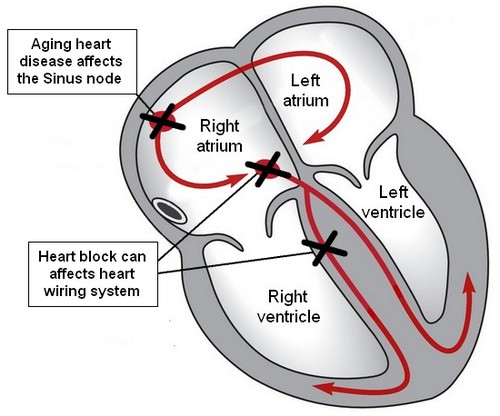Who needs a pacemaker?
When a part of the electrical system does not work correctly, the heart may beat too slowly or the chambers may not work together. When the heart beat is too slow or not coordinated, it can cause people to feel tired, dizzy, short of breath, or to faint. Having a Pacemaker device put in under the skin by a doctor will help ensure the heart beats at the right speed
Common conditions requiring a pacemaker:
Bradycardia is the most common medical condition needing a pacemaker. This means the heart rate is too slow or irregular to meet the needs of the body during normal daily activities. Symptoms of bradycardia may include dizziness, extreme fatigue, shortness of breath, or fainting.
Heart block is the result of the electrical signal travelling too slowly or not making its way through the entire heart. This can cause missed beats in the heart rhythm. Heart block can happen as a result of aging, damage to the heart from a heart attack, or other conditions that disrupt the heart’s electrical activity.
Aging or heart disease can damage your sinus node’s ability to set the correct rate for your heart beat. Such damage can cause a slower than normal heart rhythm or long pauses between heart beats. The damage can also cause your heart to switch between slow and fast rhythms. This condition is called sick sinus syndrome.
Atrial fibrillation is a condition in which the top chambers of the heart (atria) are contracting in a very fast and irregular fashion. The bottom chambers of the heart (ventricles) try to compensate for this change and can either beat quickly or slowly. Some medications used to treat atrial fibrillation may cause the ventricles to beat more slowly. This can then cause some of the same symptoms as bradycardia. A pacemaker may be needed as part of the treatment for atrial fibrillation.

Read next:
How does a pacemaker work?


